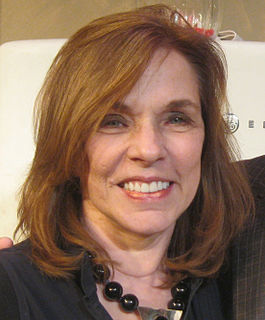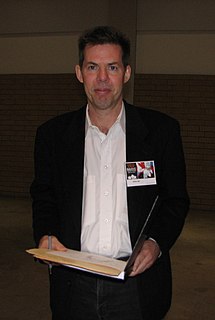A Quote by Frederick Lenz
When we are very young children we know how to feel. It's innate. But as we lead a lifetime, we pick up so many thoughts, impressions, feelings, and ideas, that our sensitivity goes away.
Related Quotes
What? What am I 'bound to be feeling?' People don’t think anymore. They feel. 'How are you feeling? No, I don’t feel comfortable. I’m sorry, we as a group we’re feeling….' One of the great problems of our age is that we are governed by people who care more about feelings than they do about thoughts and ideas. Thoughts and ideas. That interests me. Ask me what I’m thinking.
It’s impossible to monitor every thought we have. Researchers tell us that we have about sixty thousand thoughts a day. Can you imagine how exhausted you’d feel trying to control all sixty thousand of those thoughts? Fortunately there’s an easier way and it’s our feelings. Our feelings let us know what we’re thinking.
What I have learned from the teachers with whom I have worked is that, just as there is no simple solution to the arms race, there is no simple answer to how to work with children in the classroom. It is a matter of being present as a whole person, with your own thoughts and feelings, and of accepting children as whole people, with their own thoughts and feelings. It's a matter of working very hard to find out what those thoughts and feelings are, as a starting point for developing a view of a world in which people are as much concerned about other people security as they are about their own
If our children are unable to voice what they mean, no one will know how they feel. If they can’t imagine a different world, they are stumbling through a darkness made all the more sinister by its lack of reference points. For a young person growing up in America’s alienated neighborhoods, there can be no greater empowerment than to dare to speak from the heart — and then to discover that one is not alone in ones feelings.
For what is important when we give children a theorem to use is not that they should memorize it. What matters most is that by growing up with a few very powerful theorems one comes to appreciate how certain ideas can be used as tools to think with over a lifetime. One learns to enjoy and to respect the power of powerful ideas. One learns that the most powerful idea of all is the idea of powerful ideas.
The [best] coaches... know that the job is to win... know that they must be decisive, that they must phase people through their organizations, and at the same time they are sensitive to the feelings, loyalties, and emotions that people have toward one another. If you don't have these feelings, I do not know how you can lead anyone. I have spent many sleepless nights trying to figure out how I was going to phase out certain players for whom I had strong feelings, but that was my job. I wasn't hired to do anything but win.
































